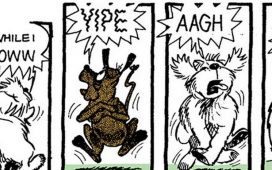
or three generations, Robert and Laura Strathern’s families have been farming in East Anglia. Today, the married couple harvest potatoes, maize, rye and wheat on farmland across the Colne Valley near Colchester in Essex.
It hasn’t always been easy. Low prices for crops and livestock in the early 2000s forced the Stratherns to diversify the farm’s business activities in order to keep it going. The direction they took was to combine farming and retail, by creating snacks sourced directly and sustainably from their own fields.
Lightly salted, sustainably sourced
By 2006 they had made Fairfields Farm Crisps a reality, establishing a range of hand-cooked crisps using renewable energy and potatoes grown on their farm. Fifteen years on, their award-winning product range is being exported to 20 countries worldwide.
“We wanted to turn a commodity – our potatoes – into a brand,” says Robert Strathern. “And consumers want food that is produced in a sustainable way. Ten years ago this was a nice-to-have. Today, it’s a must-have.”
Build sustainability into your business
Google has created a new free, simple and actionable training programme to help small businesses understand how they can become more sustainable, and how this could help their overall business performance.
Developed in partnership with the UK Government’s Together for Our Planet campaign, the programme covers:
- Why sustainability is good for business
- How to start your journey
- Where to use sustainability measures to engage employees and customers
The growing and manufacturing process is powered by mostly renewable energy, including solar power and anaerobic digestion – the process by which bacteria breaks down food waste to produce methane.
The by-product of anaerobic digestion is nutrient-rich organic fertiliser – which is used across the farm. This means they can avoid using chemical alternatives that can kill soil life and leach into the waterways, endangering wildlife.
“As farmers we have a responsibility to look after the land,” says Strathern, “and pass it on to the next generation in a good condition.”
Ecological plantings
The farm also plants a range of “cover crops” in-between main crops, which help the soil capture more carbon. Plants absorb carbon from the atmosphere as they grow, and release it as they decompose.
In addition, the farm employs sustainable business practices by recycling sunflower oil from its crisp fryers into a biofuel, which is then sold on, and it plants trees to offset its carbon impact.
To spread the eco-friendly message to customers, Strathern recently hired a marketing and ecommerce manager. “Lockdown forced us to sell and advertise more online,” he says. “We also communicate the farm’s sustainability story on social media. To be transparent, we share the challenges we’ve faced.”
For instance, the business is part of the Terracycle crisp packet recycling scheme, but consumers have to take their empty packs to specific drop-off locations, which adds fossil fuels to the sustainability equation. Strathern is looking at “more sustainable” alternatives.
You have to be sustainable and profitable – those two things go hand-in-hand
By advertising these green initiatives, Strathern believes that the business has hit its growth targets, he says, but he also sees room for improvement. “In farming you have to be sustainable and profitable. Those two things go hand-in-hand.”
To discover how your business could become more sustainable like Fairfields Farm Crisps, sign up for Google’s free training programme here.














